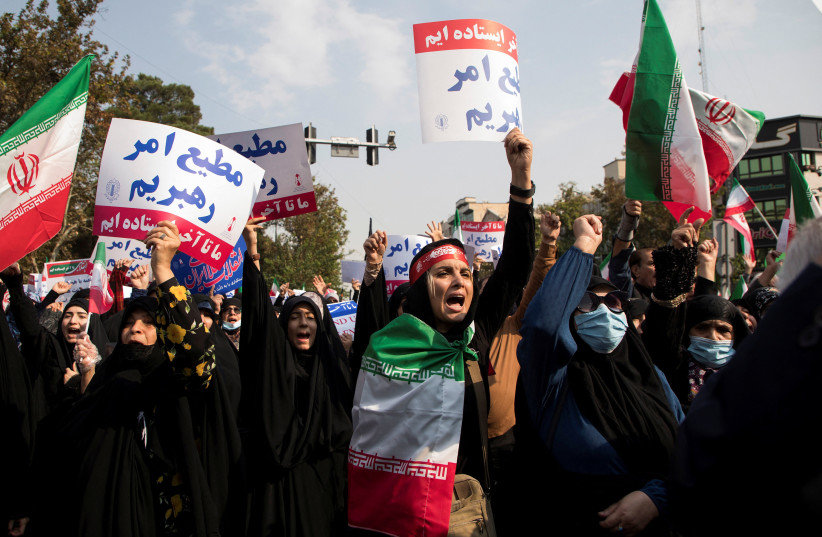The infamous Judge Abolqasem Salavati, who has been nicknamed Iran’s “hanging judge,” sentenced a 25-year-old Iranian woman to 10 years in prison for “encouraging prostitution” because she took off her mandatory headscarf at an anti-regime protest.
Voice of America tweeted in Persian about Mahsa Peyravi’s sentence on Sunday.
The American governmental news organization wrote on Twitter that the Tehran Revolutionary Court sentenced Peyravi for taking off her headscarf in October during a protest on Mirdamad Boulevard in Tehran. She twirled her hijab in an oft-repeated act of defiance against the clerical men who rule the theocratic state.
The Tehran court found her guilty of “encouraging corruption and prostitution” for her rejection of the obligatory Islamic dress code. She was also convicted of “assembly and collusion.” Human rights organizations have long argued that the Islamic Republic of Iran’s opaque judicial system fails to meet the rudimentary norms of a modern legal system.
'End of Iranian dictatorship is near'
Hamid Charkhkar, an Iranian-American academic, told The Jerusalem Post, “These cruel and inhumane treatments of Iranians by the Islamic regime in Iran shows the end for [Ali] Khamenei’s dictatorship is near. The youth in Iran will no longer tolerate Sharia laws, and they are done with medieval Mullahs controlling their lives. Over the last 100 days, Iranians have fought this regime every day, and now, for the first time in 43 years since the emergence of Islamic fascism in Iran, most people can see a future without the Islamic Republic.”

Iranians launched a nationwide series of protests against Khamenei regime’s after the nation’s notorious morality police killed Mahsa Amini in prison in September for failing to properly wear her hijab. The highly repressive Islamic nation has been gripped with demonstrations since Amini’s murder.
Charkhkar, a member of the Alliance Against Islamic Regime of Iran Apologists, added, “Although Khamenei and his thugs use scare tactics such as executions, torture and long-term prison sentences to silence people, this revolution will continue till the day Iranians are rid of these monsters.”
Frieda Fuchs, who is also a member of alliance and has a PhD in government from Harvard University, told the Post, “The control of women’s minds and wombs is a fundamental feature of theocratic regimes such as Iran.... Wherever women’s rights are attacked, so are the fundamental rights of other groups in that society. Iranian women are the noble heirs of the enlightenment; theirs is humanity’s struggle for freedom. Iran’s gender-apartheid regime has no place in our world. Let’s hope that one day we can look back on theocratic Iran, where women are jailed or killed for unveiling, and then labeled prostitutes, in the same way that we look back at racial-apartheid South Africa: a historic anachronism.”
The Alliance Against Islamic Regime of Iran Apologists is a US-based organization that seeks to secure the dismissal of pro-Iran-regime Professor Mohammad Jafar Mahallati at Oberlin College in Ohio. Amnesty International accused Mahallati of covering up the mass murder of at least 5,000 Iranian dissidents in 1988. Mahallati, who served as the Islamic Republic’s ambassador to the UN from 1987-1989, denies he covered up the killings.
